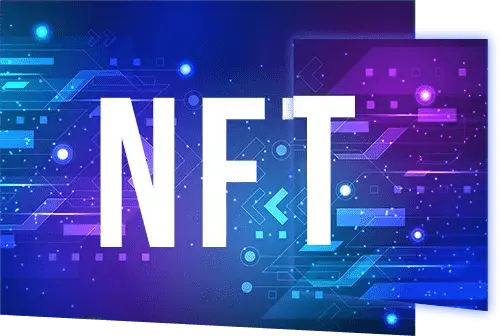- Services
- Hire Developer
- Our Products
- Insights
- Our Company
Invest In Real Estate Tokenization With The Help Of A Token Development Company

Real Estate Tokenization is the process of digitizing ownership of a real estate property by issuing and managing tokens on a blockchain network. The procedure enables numerous investors to possess a portion of the property through fractional ownership.
Despite its considerable size, the real estate market supply chain has been subject to extensive losses caused by intermediaries, liquidity issues, supply chain management issues, and more. In recent years, the advent of real estate tokenization has revolutionized the investment prospects of both issuers and investors. The role of token development companies in the real estate domain has catalyzed a comprehensive sector transformation.
Investing in tokenized property is similar to investing in a syndicated real estate deal; instead of acquiring a paper certificate denoting a membership interest, a tokenized real estate investor obtains a crypto token that symbolizes that same interest.
Process of Real Estate Tokenization
The first step in tokenizing a property is to select and evaluate it to determine its potential value and profitability. It is followed by assessing all the necessary legal and regulatory requirements for tokenization and obtaining all the required permits and licenses. Subsequently, tokens representing fractional ownership in the property get issued on a blockchain platform. They can reflect ownership like equity, debt, or rental income rights. The Tokens get offered to potential investors through a public or private sale. The marketing and advertising activities draw the interest of the investors. Due to compliance with applicable laws and regulations, potential investors get verified in terms of identity and accreditation status before issuing tokens. Tokens provide investment liquidity and get exchanged on a blockchain network or a cryptocurrency exchange. Blockchain facilitates the management of the property and its associated financial operations, such as rental payments and profits distributions, with the inclusion of smart contracts.
The Participants Involved in the Real Estate Tokenization Process
- Real Estate Developers:Real estate developers are the primary owner of assets. They utilize tokenization to procure capital, augment liquidity, and minimize transaction expenses.
- Tokenization Platform Providers:Token development company offers the necessary infrastructure for tokenizing real estate assets. These companies specialize in blockchain technology, Smart contract development, and compliance solutions.
- Regulators:Regulators guarantee that real estate tokenization abides by relevant rules and regulations. Furthermore, they can authorize security tokens. They can also verify the distribution of the Tokens according to the securities laws.
- Investors:Investors are the ultimate beneficiaries of tokenized real estate assets. Thanks to tokenization, they can now access properties that may have been previously out of reach due to prohibitive capital requirements, illiquidity, and geographic limitations.
- Exchanges:Exchanges facilitate the trading of security tokens. These tokens represent fractional ownership in real estate assets. They provide a marketplace where investors can buy and sell Tokens.
- Service Providers:Service providers such as lawyers, accountants, and auditors may be required to ensure compliance with regulatory requirements and provide other services related to real estate tokenization.
Benefits of Real Estate Tokenization
Additional Capital Sources: Real Estate tokenization can expand investor access to projects. It allows a network of investors to get exposed to opportunities they may not have seen coming. It can significantly improve sponsors' access to capital by providing increased marketing and awareness, resulting in greater visibility and accessibility.
Automation Increases Efficiency: Smart contracts underpinning real estate tokens can streamline compliance with securities regulations, as well as facilitate investor communication, distributions, purchases, sales, tax accounting, and (where applicable) investor voting. This automation allows real estate sponsors to manage a large investor base and create a comprehensive audit trail for all property operations.
Fewer Ownership Issues: Tokenization of an asset can be useful for a real estate owner to address complex issues, such as dissolving a partnership or apportioning an estate among its inheritors. With the help of a token development company, owners can make decisions regarding the purchase, sale, or termination of their assets. While tokenization cannot resolve every Real estate-related conflict, it can assist in many difficult circumstances.
Lower Transactional Costs: Blockchain can streamline the real estate tokenization process, reducing transactional costs. There is no need for intermediaries. As a result, investment operations are typically performed more rapidly and with reduced expenses for the parties concerned, which enables superior yields for the investor. A suitabletoken development companywill suggest more details about these transactional costs.
Liquidity: Real estate tokenization enables investors to enhance their portfolios and increase liquidity in the market. Rather than selling the whole property, the owners of tokenized real estate assets can quickly sell their tokens. This procedure welcomes new members to the market and ensures better liquidity on the investment.
The Future of Real Estate Tokenization
Real estate tokenization is a relatively new technology. It is still in the early stages of development, but its potential is significant. Tokenization is poised to become increasingly popular when developers and investors realize its advantages. It offers greater liquidity, decreases transactional expenses, and provides an investment opportunity. It could enable global investment in real estate, as investors from around the world could buy fractional ownership in real estate assets regardless of their physical location. This factor could lead to increased investment in emerging markets where real estate is less accessible.Real estate tokenizationcould be integrated with decentralized finance (DeFi) protocols, allowing for greater automation and potentially reducing transaction costs even further.
The Road Ahead
Tokenization has had a marked beneficial effect on the real estate sector, increasing liquidity, transparency, security, and inclusiveness, as well as improving management. The tokenization approach applies to many other industries requiring innovation and reform. It will also facilitate the implementation of overdue changes in their processes, setting them on a new trajectory.
 info@infograins.com
info@infograins.com




















